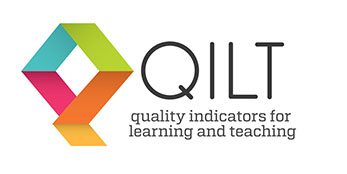The Commonwealth Government has established the Quality Indicators for Learning and Teaching (QILT) project as a way to gather sector benchmarkable data on student and graduate satisfaction and outcomes. Results are made publicly available on the QILT website, are also used in the Good Universities Guide and are often reported in the media.
The main surveys under the QILT banner are:
- Student Experience Survey (SES) – Each year current students are asked about a range of aspects of their university experience, including overall educational experience, teaching quality, skills development, learning resources, learner engagement and student support. Students are also asked whether they seriously considered leaving university, and if so why. SES National Reports are available from the QILT website.
- Graduate Outcomes Survey (GOS) – The GOS is sent to graduates around four to six months after they complete their qualifications. The questionnaire seeks feedback on things such as: employment status, extend to which graduate felt prepared for the workplace and satisfaction with recently completed course. If respondents agree, they are then sent a similar survey (the GOS-Longitudinal) three years later, as a way of following their path in terms of career development or further studies.
- Course Experience Questionnaire (CEQ) – The CEQ is completed in conjunction with the GOS, and allows students to provide information on their study experiences at the University. It evaluates students' perceptions of teaching quality, skills improvement and overall satisfaction.
- Graduate Outcomes Survey-Longitudinal (GOS-L) – The GOS-L supplements the GOS by collecting information on medium-term employment outcomes 3 years after graduation. The results show how employment status and salary can change for graduates over time. The GOS-L replaces the Beyond Graduation Survey (BGS).
- Postgraduate Research Experience Questionnaire (PREQ) – The PREQ is conducted annually and targets all graduating students who have completed research degrees. It evaluates areas including supervision, intellectual climate, skills development, infrastructure, thesis examination, clarity of goals and overall satisfaction.
- Employer Satisfaction Survey (ESS) – The ESS seeks feedback from supervisors of recent graduates on the generic skills, technical skills and work readiness of the graduate they employ. The results indicate the quality of the University's education in preparing students for the workforce. ESS national reports are available from the QILT website.
